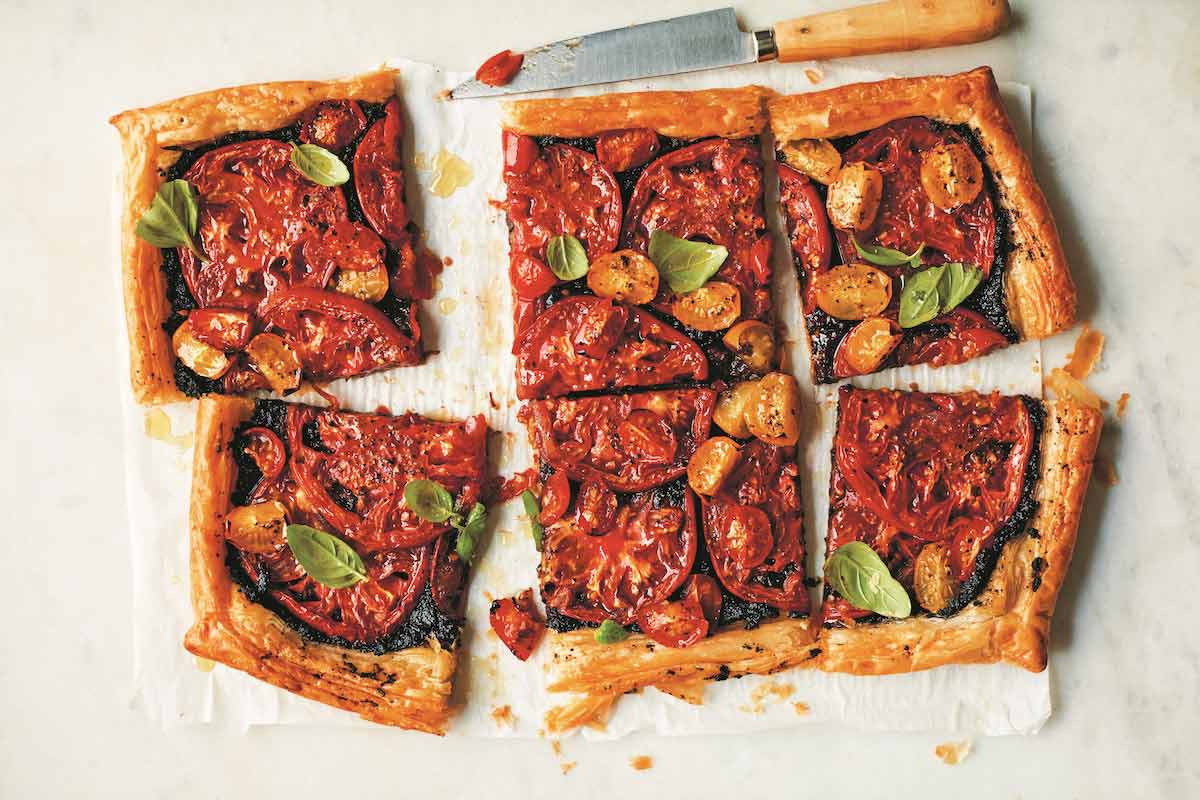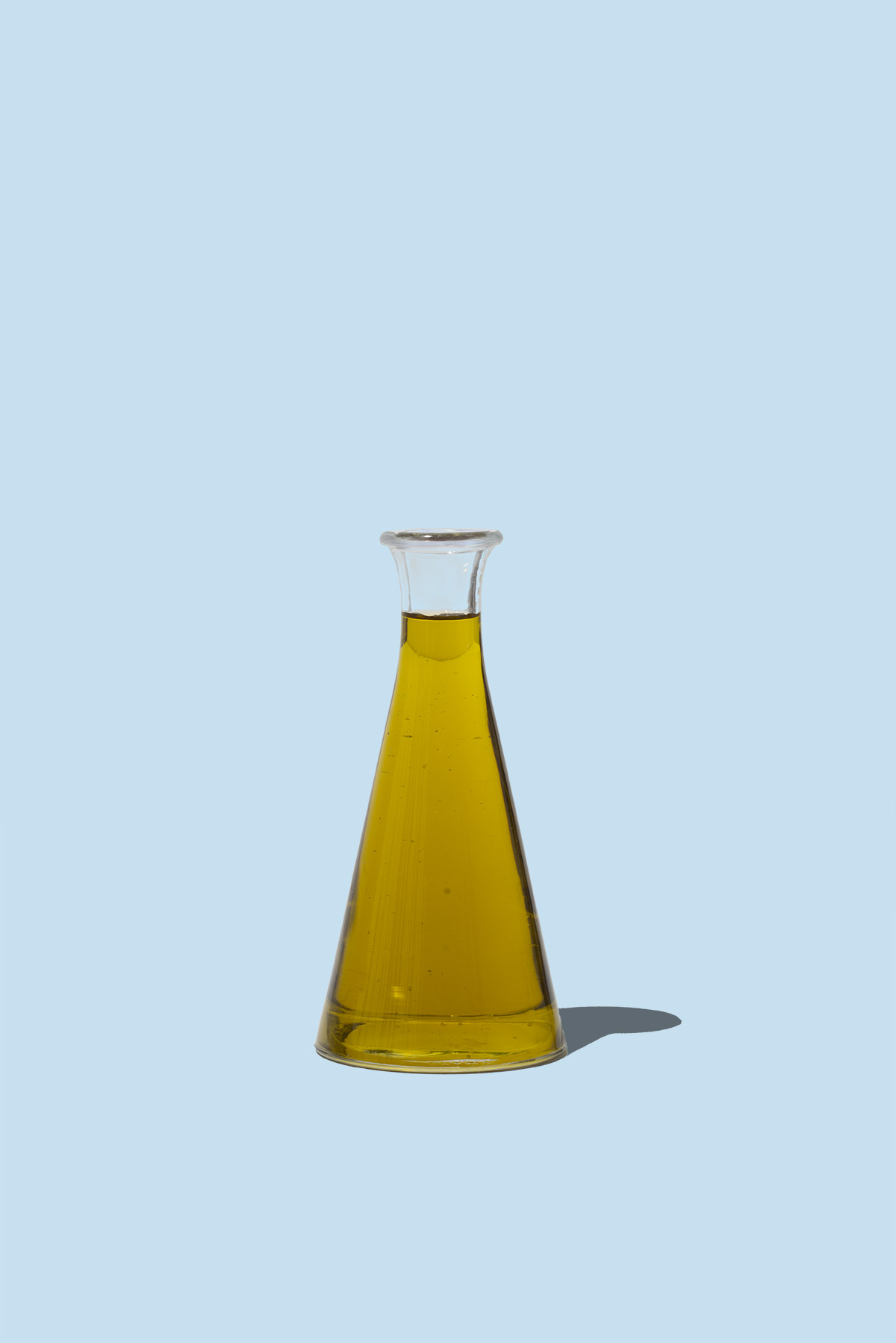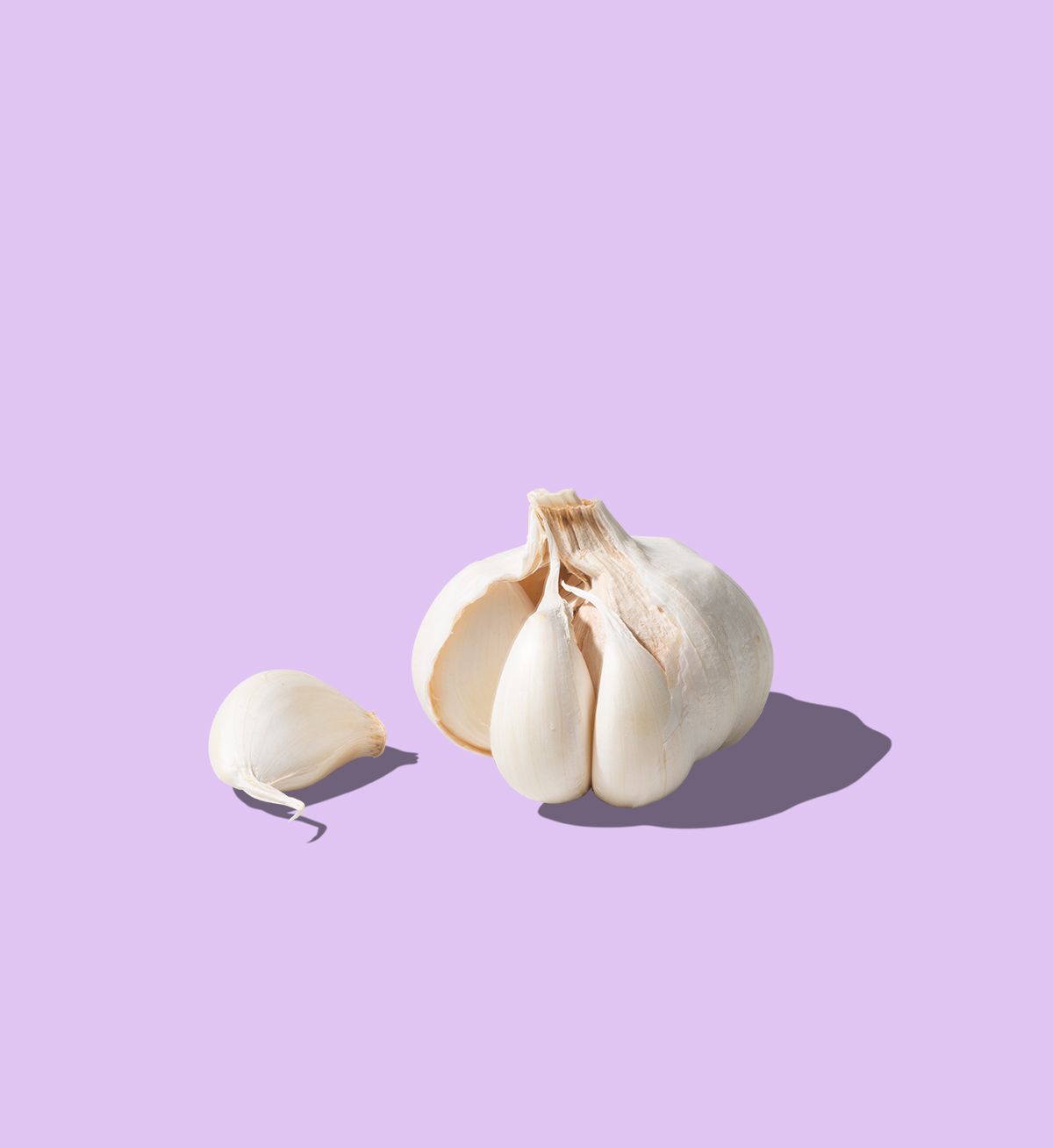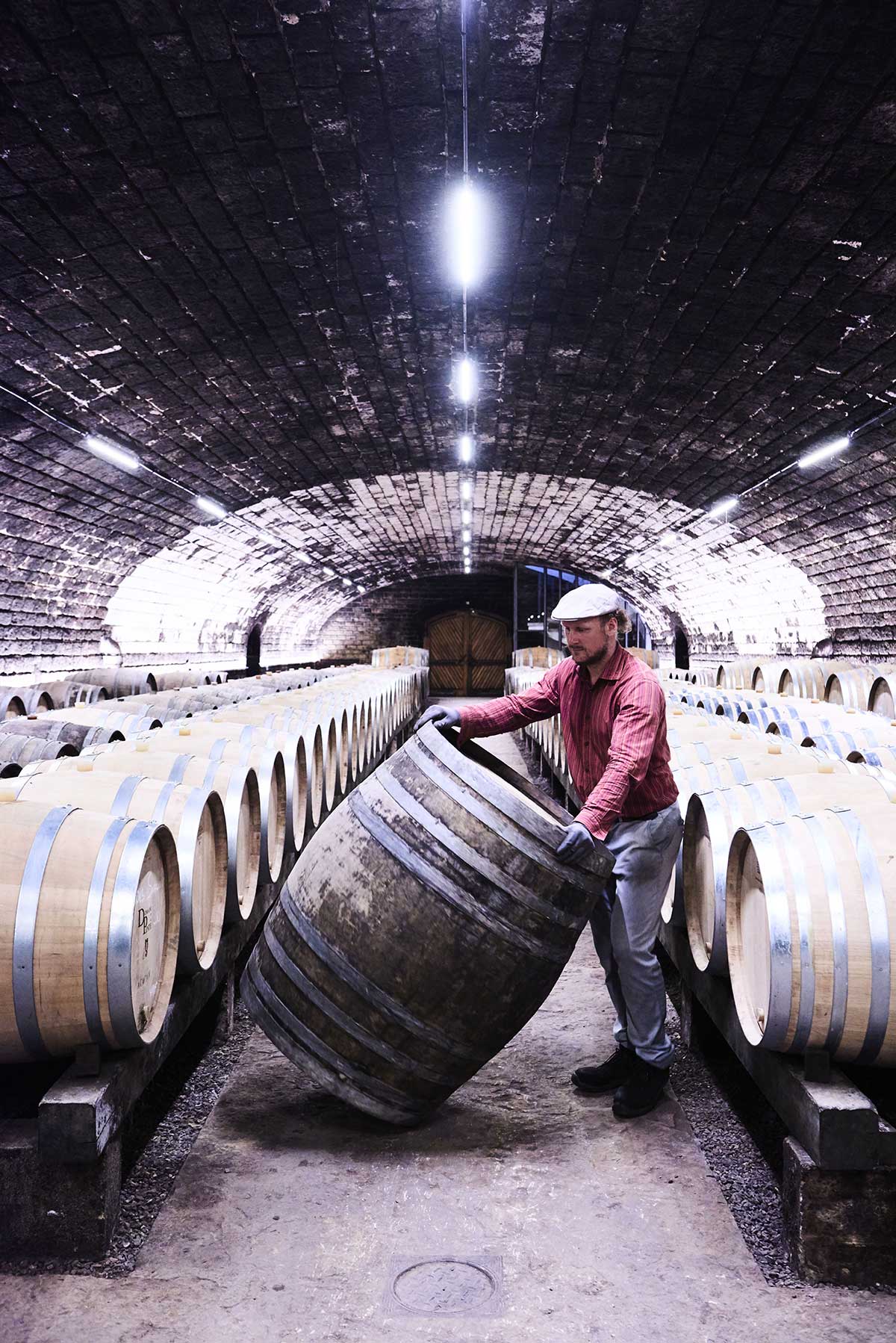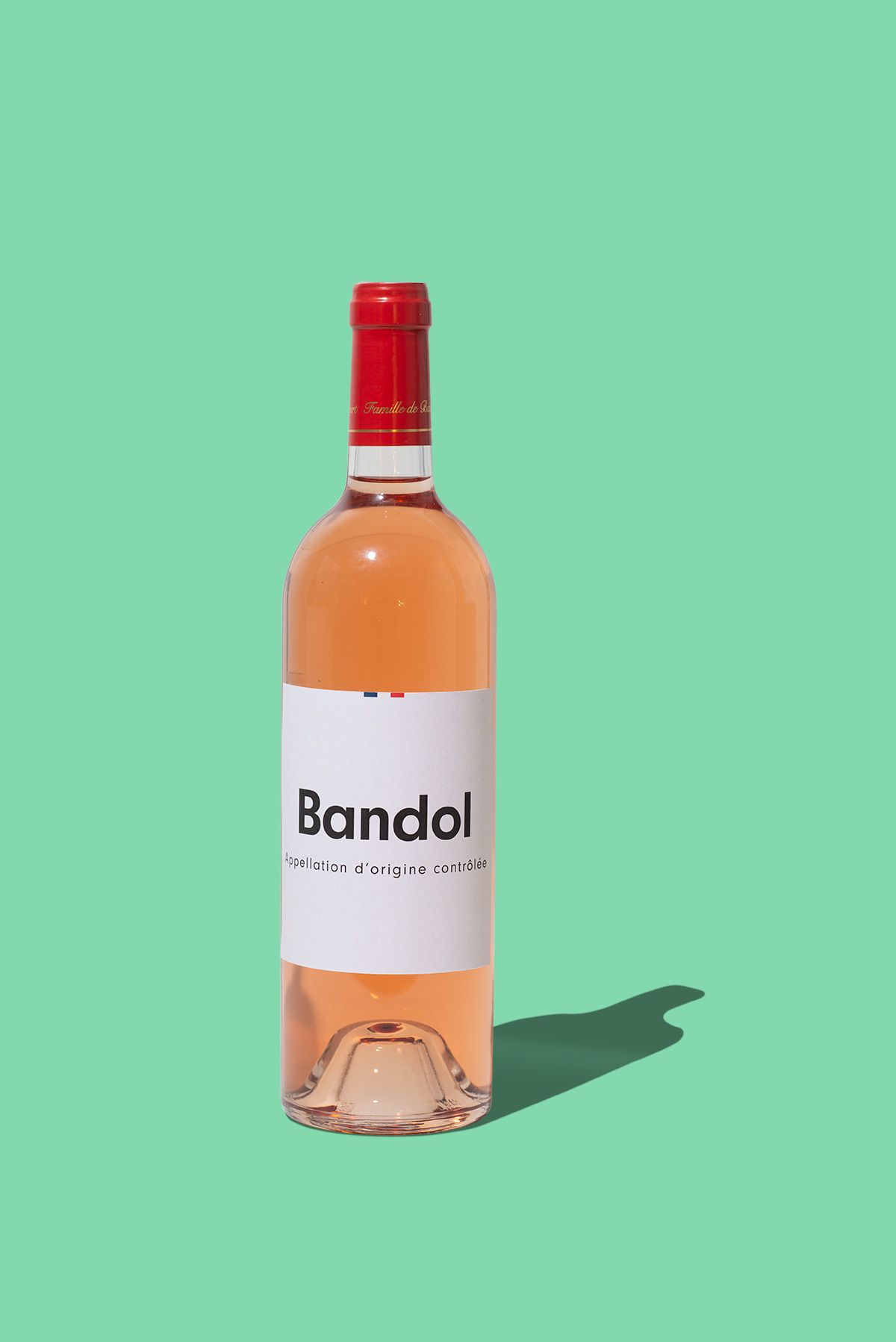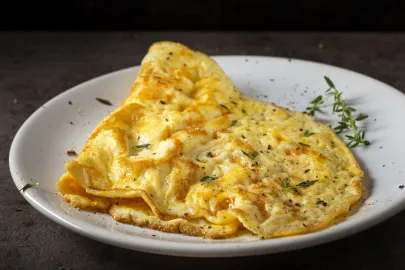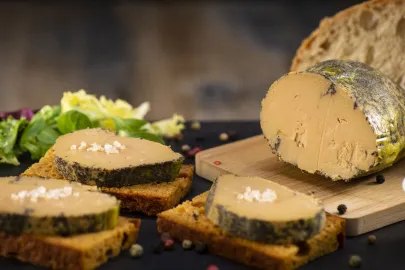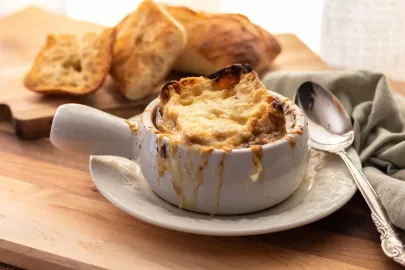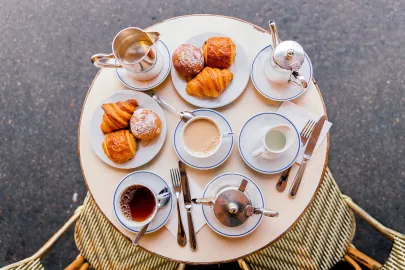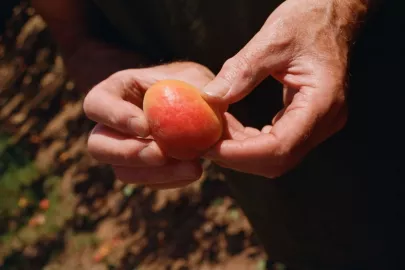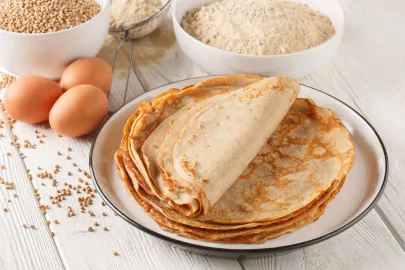At thirty-eight years-old, the London-based chef known for his love of French cooking has just published his second cookbook, “Frontières”. With in-depth research and his very own voice, Alex Jackon investigates the cooking of French borderlands, spreading from the Alps to Alsace and the Basque country. We’ve had a chat with him about lapin à la moutarde, the romance of Provence and how French cheese makes the greatest staff meal.
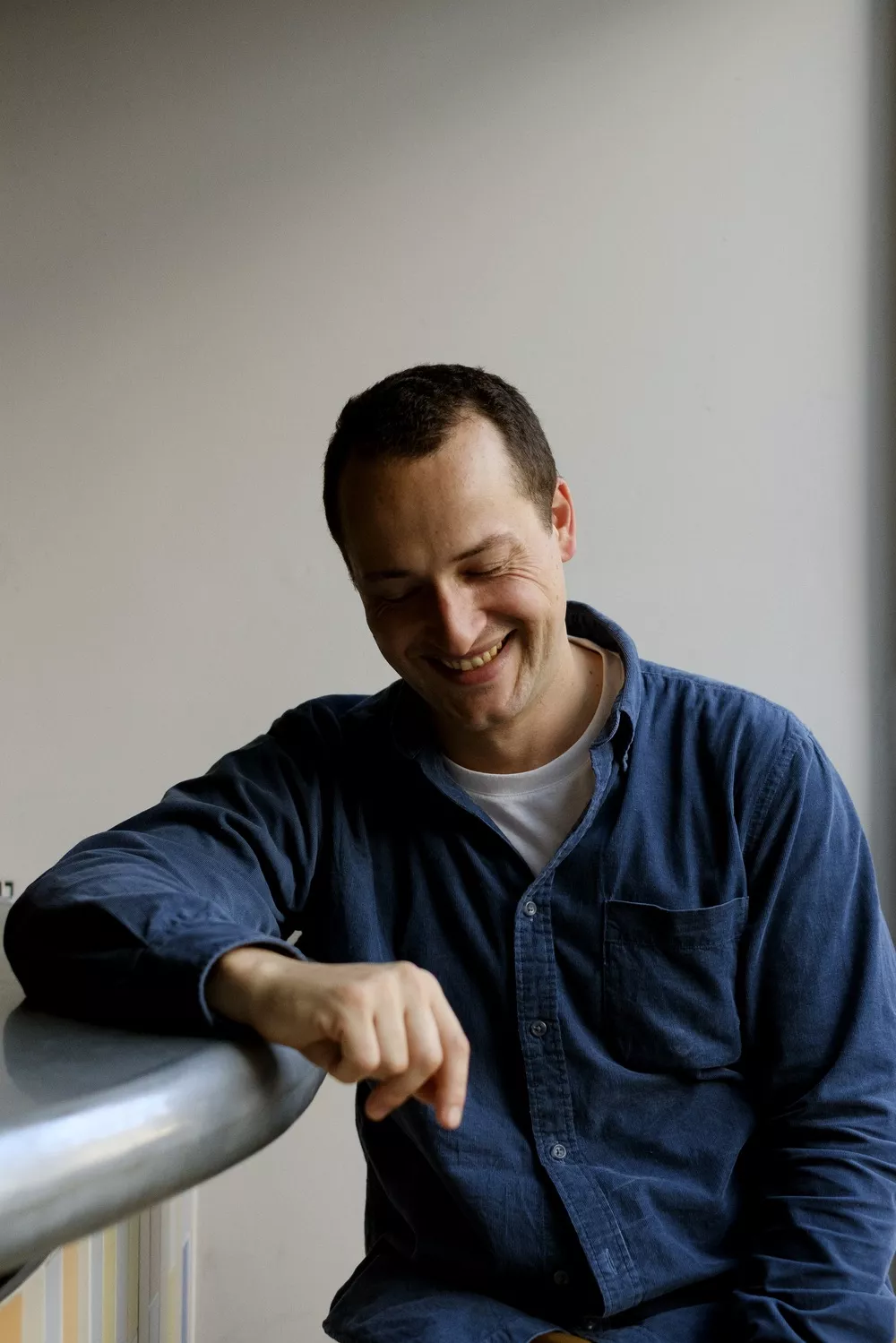
Tell us how it all started with France…
I am from Birmingham, but I’ve spent countless family holidays as a child in France, mostly near Gaillac, in the Southwest. There was this little sideroad spot where we would eat entrecôte-frites sitting on plastic chairs, nothing fancy but the basic, noble side of French food I’ve always loved. Going shopping at the outdoor market or ordering bread at the boulangerie… That started me speaking French!
Did you go to cooking school?
Not at all, I read French and philosophy at University London College (UCL) and got to spend an exchange year in Paris. I was there to study Russian history at La Sorbonne Paris 3, all in French of course. I did not understand a thing!
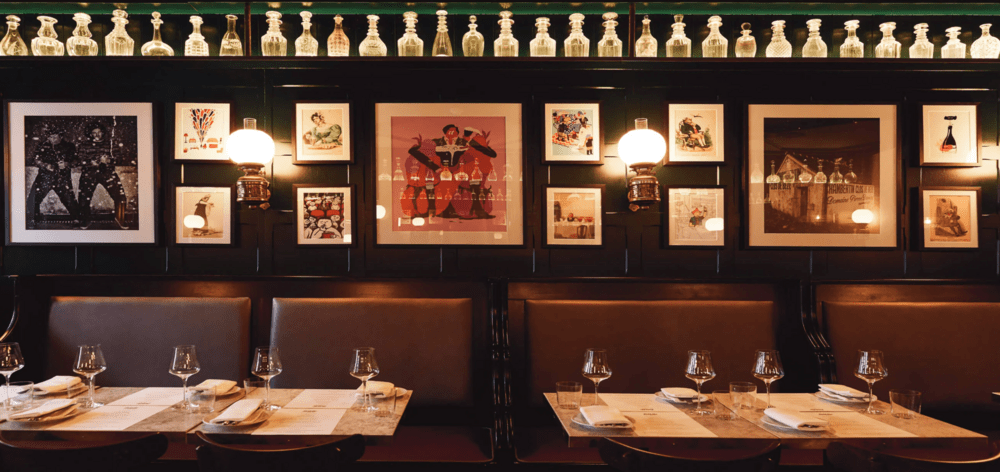
That exchange year in Paris ignited your passion for French cuisine…
Yes, at that time I was living near Ecole Militaire in the 7th arrondissement, surrounded by amazing produce. There was a beautiful market on avenue de Breteuil and all the shops rue Clerc: girolle mushrooms in autumn, chèvre au lard from the cheesemonger… As students, we were obviously on a budget, but we ate like kings. That’s when I started becoming a keen amateur cook, rustling up the likes of lapin à la moutarde or roasting a whole leg of lamb.
Back home, you started working in kitchens…
Yes, when I came back to London at 22 years-old, I went back to uni but cooked paninis and quiches on the side at le Péché Mignon in Highbury - still there today.
My friend Stevie Parle gave me my first proper kitchen job opportunity at Dock Kitchen, his experimental restaurant in Ladbroke Grove in 2009. He was a great teacher; I was thrown right in! After six months of enthusiasm, confusion and fun, that’s when it all clicked: I was good at it! I learnt how to cook a broad range of Mediterranean dishes, we served guests supperclub-style, four or five courses in a set menu.
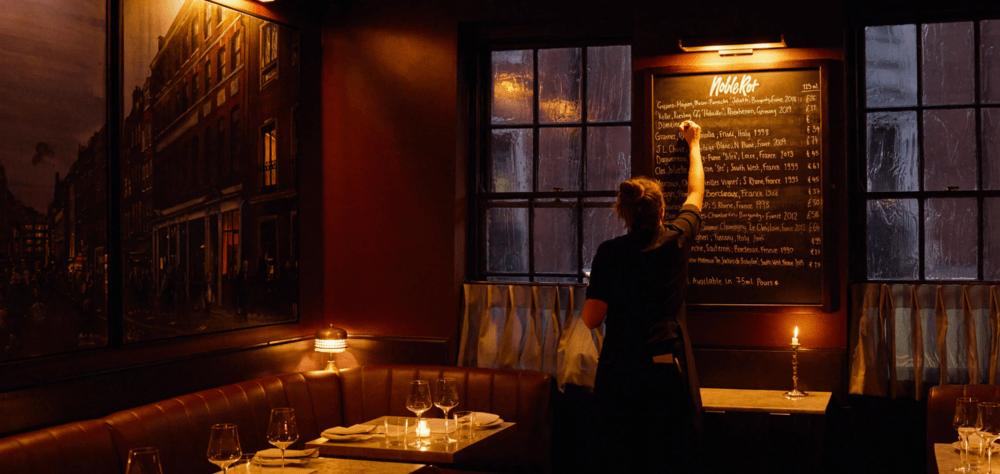
I then helped him open his Italian restaurant Rotorino in Dalston, and then moved on to the supplier side of the business, selling cheese for Mons Cheesemonger for a year and a half. The bit I liked the most was talking to chefs!
How did your former restaurant Sardine come to life?
I wanted to open a restaurant, and the owner of the building wanted to host one on the ground floor of the Parasol art gallery near Old Street. That’s how Sardine happened, and it was beautiful until we closed it in 2020.
You decided to focus on Provençal cuisine there…
I’ve always had a strong love for Mediterranean food, but felt I needed a bit more focus: through cookbooks like “Lulu's Provençal Table” by Richard Olney and “A Table in Provence” by Leslie Forbes, I found romance in the food of Provence, the sunkissed vegetables and the fresh herbs. A good olive oil, saffron and garlic: it sums it all up, I got hooked.
To me, the synergy between comforting and exotic was like a portal to the rest of the Mediterranean. It quickly turned into an obsession: I invented bits because I didn’t know the classics - it allowed me to improvise and make mistakes. As an Englishman, being an outsider gave me another point of view.
A recipe from the Sardine cookbook:
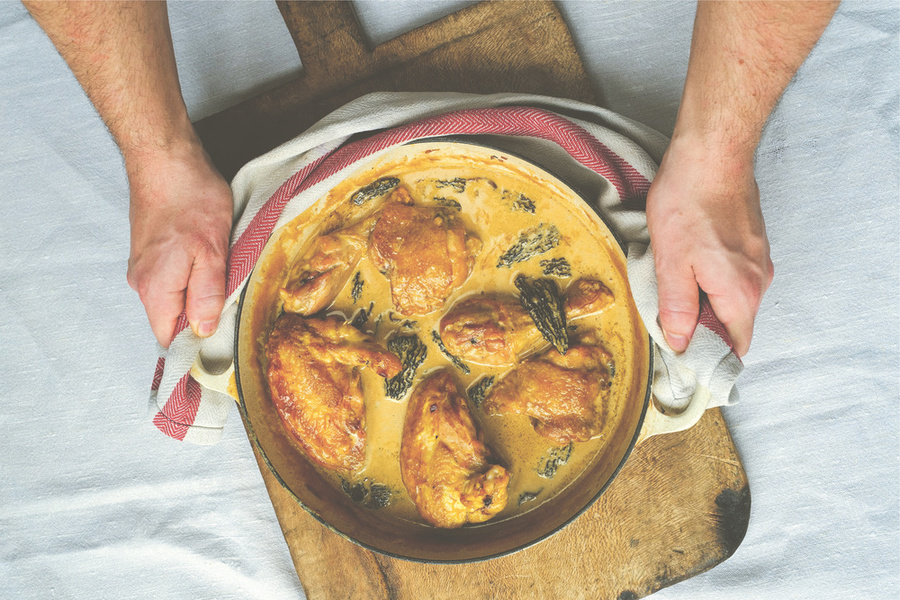
What is your vision of French cuisine?
It’s not so much about the techniques, the sauces and the fine dining experience. I’m more interested in rustic, simple and humble cooking that has been there for generations: roast chicken with tarragon, butter and green bean, gratin savoyard with mushrooms…Farmhouse dishes, that’s the beauty of French cuisine to me.
In your second book “Frontières”, you investigate the cooking of French borderlands, tell us more about the book and how it came to life
At first, I had this idea of writing a cookbook about Old Occitania. We then decided with my agent to narrow it down to the actual Occitanie French region near the Spanish border and its influences. And eventually, we looked at all the borderlands in France: Southwest, the Riviera, the Alps, Alsace and even North Africa, examining the geographical, historical, linguistic and metaphorical links surrounding the dishes.
I’m not a historian, but I wanted to look at where extremely French food actually comes from, and how it’s evolved over millennia. I find it particularly interesting to look at borders at a time of closing them. Cooking has evolved thanks to people moving borders, and cooking brings people together!
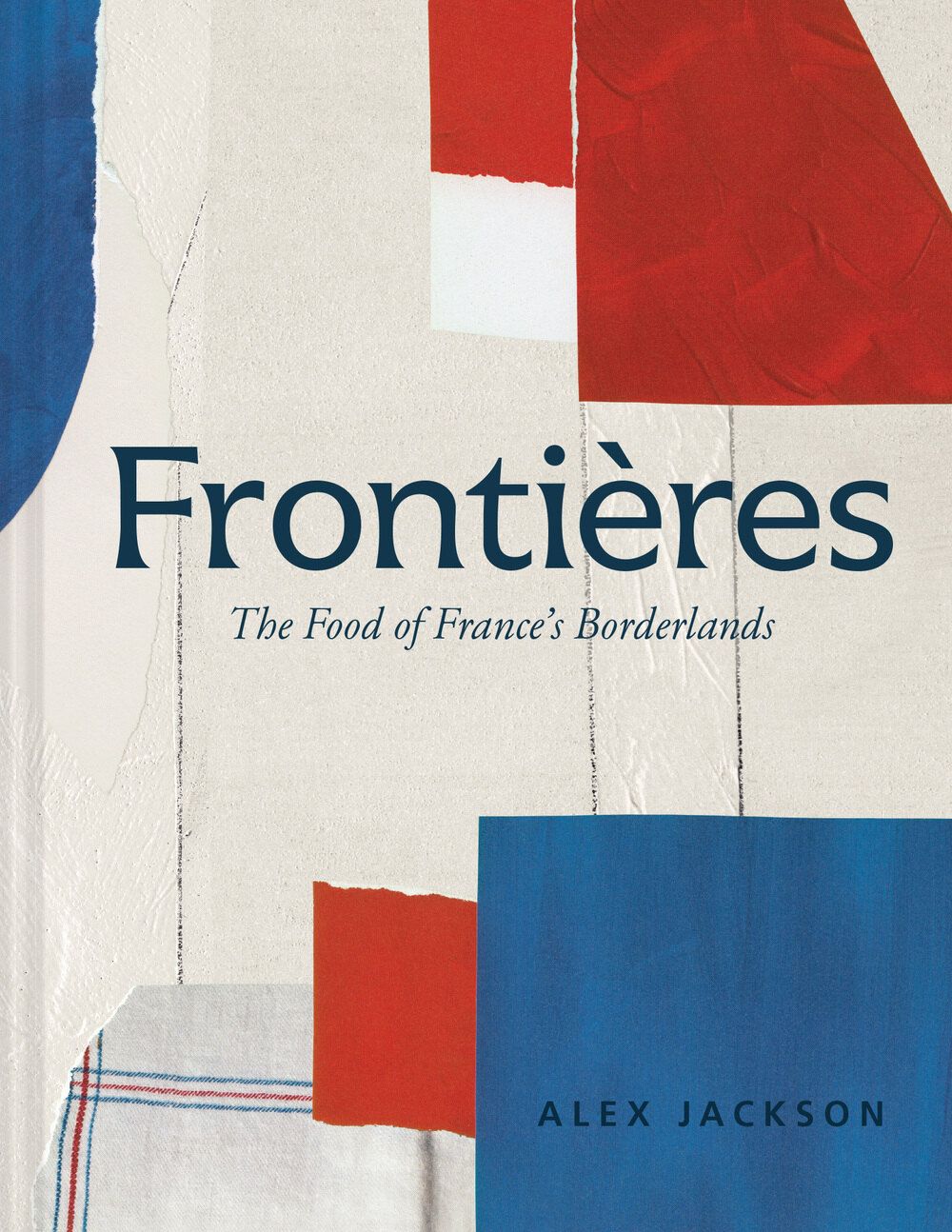
You created over 80 recipes for the book, which one is your favourite?
It’s so hard to pick just one! But my favourites include garbure - a thick cabbage and goose confit stew from the Southwest -, the roast chicken with morels and vin jaune sauce from Jura I cook every day at work and never get tired of, or the “frites-omelette”, a Tunisian-inspired, by way of Marseille, streetfood recipe, which appeals to English people. French fries, eggs and merguez sausages, there’s something very familiar to it.
You are now the head chef at Noble Rot Soho: what’s your approach to French cooking there?
I like to cook dishes that suit the room. Noble Rot Soho has a very dark and cosy vibe that calls for lots of crème fraîche rather than sunny Provençal cooking. I favour the likes of Jura staple roast chicken with morels and vin jaune sauce or chou farçi (stuffed cabbage) during winter months, as a nod to the central European restaurant that stood in this building before us - the famous Hungarian restaurant Gay Hussar.
Noble Rot is celebrated for its impressive wine list. What French wine do you like the most?
For my birthday, I was given a half-bottle of red Bandol from Domaine Tempier. I was a bit influenced by French writer Jean-Claude Izzo and his essays on Marseilles and Mediterranean Cuisine called “Garlic, Mint, & Sweet Basil”. He talks about the Mourvèdree grape variety and how it goes with garlic, bouillabaisse…. Give me a young Bandol in an ice bucket on a hot summer day, the weight of it is just beautiful.
What French staple do you always have at home?
I can’t do without Dijon mustard. When there was a shortage, the struggle was real! I use it at home to make a simple vinaigrette, and it is also the base of this mustard sauce I make at Noble Rot with shallots, butter, crème fraîche and white wine. A very simple French sauce everybody should learn how to make!
Where do you shop for French food in London?
I’m also big on cheese: smelly-sticky-delicious Cancoillote from Franche-Comté, baked Mont d’Or, tartiflette… Cheese is my go-to snack at the restaurant. Give me lots of nice Etrez Bresse Butter PDO and goat’s cheese from Provence, I can die happy.
Read his book: Frontières: Food and Cooking from France's borderlands, Alex Jackson
Pavilion Books, £30
Taste his food: Noble Rot Soho
2 Greek St, London W1D 4NB, United Kingdom
noblerot.co.uk
Contributor
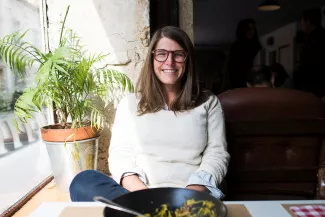
Editor

